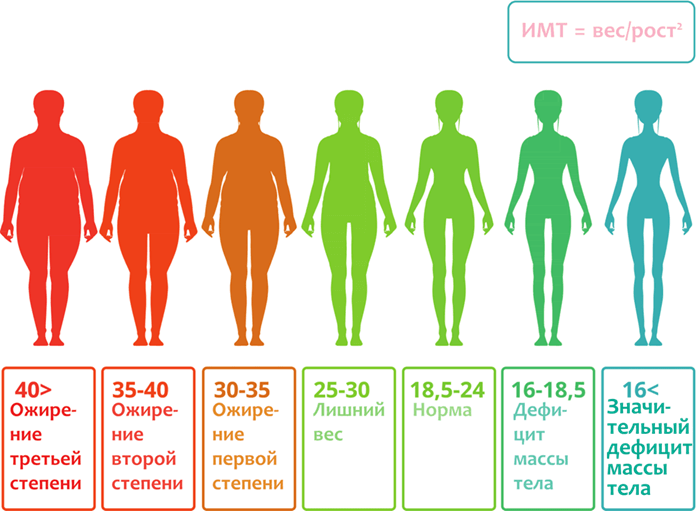Genetics play a leading role in Alzheimer's and other types of dementia, but lifestyle factors are also important. Even people genetically prone to developing dementia were about a third less likely to develop dementia if they had a healthy lifestyle than if they did not, according to a study published in the journal published by the American Medical Association.
But what specific lifestyle factors can most strongly influence whether a person will suffer from acquired dementia in old age or not?
To try to answer this question, an international team of researchers analyzed 396 previous studies, including 153 randomized controlled clinical trials, which were considered the "gold standard" of studies.
Collectively, these studies analyzed more than 100 possible modifiable risk factors for dementia.
Based on these facts, a team of scientists identified 10 factors that are most likely to increase the likelihood of developing dementia in old age.
Here are the top 10 factors that can increase the likelihood of dementia.
10. Diabetes mellitus
 Scientists aren't sure why diabetes increases the risk of blue dementia, but they speculate that excess glucose (sugar) in the blood - which happens in uncontrolled diabetes - damages the brain over time.
Scientists aren't sure why diabetes increases the risk of blue dementia, but they speculate that excess glucose (sugar) in the blood - which happens in uncontrolled diabetes - damages the brain over time.
9. Hyperhomocysteinemia
 Homocysteine is an amino acid that is produced in the body when proteins are broken down. High levels of these amino acids cause a condition known as hyperhomocysteinemia. It can damage arteries and lead to blood clots.
Homocysteine is an amino acid that is produced in the body when proteins are broken down. High levels of these amino acids cause a condition known as hyperhomocysteinemia. It can damage arteries and lead to blood clots.
People with dementia often have elevated blood homocysteine levels. And according to several studies, lowering homocysteine levels may protect against cognitive decline.
Elderly people are advised to regularly check their blood for homocysteine levels, and people with high levels of this amino acid should be treated with vitamin B and / or folic acid. But only as prescribed by a doctor!
8. Body mass index (BMI)

Being overweight or obese before age 65 is associated with an increased risk of developing dementia later in life. One study says adults should maintain a healthy weight - a BMI between 18.5 and 24.9.
However, the study also emphasizes that people should not be "too thin." The risk of dementia is also increased for those who are underweight (BMI less than 18.5) in middle and old age.
7. Education
 The impact of education on the risk of developing acquired dementia is controversial. Several studies have found a link between high educational attainment and low risk of dementia.
The impact of education on the risk of developing acquired dementia is controversial. Several studies have found a link between high educational attainment and low risk of dementia.
However, some researchers believe that such results simply reflect the ability of highly educated people to better compensate for the effects of dementia.New research recommends that people actively learn and learn as much as possible from an early age.
6. High blood pressure in middle age
 Many studies have linked high blood pressure (hypertension) in middle age (40 to 64) with dementia later in life.
Many studies have linked high blood pressure (hypertension) in middle age (40 to 64) with dementia later in life.
This risk factor is most closely associated with the development of vascular dementia, which occurs due to impaired blood supply to the brain. Uncontrolled high blood pressure can damage your blood vessels. Therefore, treating hypertension and maintaining a healthy lifestyle are essential prerequisites for reducing the risk of dementia.
5. Orthostatic collapse
 This is a condition in which a person experiences a sudden drop in blood pressure when getting up from a standing or lying position.
This is a condition in which a person experiences a sudden drop in blood pressure when getting up from a standing or lying position.
Low blood pressure results in less oxygen and nutrients reaching the brain, and over time can increase the risk of dementia. A new study suggests that doctors need to closely monitor the mental health of patients with orthostatic collapse, looking for early signs of cognitive decline.
4. Head injury
 For the past 30 years, researchers have linked head injuries such as concussion to dementia later in life. Older adults with moderate head injury are 2.3 times more likely to develop Alzheimer's disease than their peers without an injury.
For the past 30 years, researchers have linked head injuries such as concussion to dementia later in life. Older adults with moderate head injury are 2.3 times more likely to develop Alzheimer's disease than their peers without an injury.
But it is not yet clear whether single or repeated head injuries are needed to increase the risk of developing dementia.
3. Cognitive activity
 The available data on the risk of developing dementia suggests that people who keep their brains active - by reading, playing musical instruments, or attending various educational activities - are less likely to develop age-related dementia.
The available data on the risk of developing dementia suggests that people who keep their brains active - by reading, playing musical instruments, or attending various educational activities - are less likely to develop age-related dementia.
Doing so can help strengthen synaptic connections between brain cells that are known to be destroyed in dementia.
2. Stress
 Research has shown a link between chronic stress and dementia, although the reasons for this are unknown. However, stress is known to negatively affect the immune system and this plays a role in the development of dementia.
Research has shown a link between chronic stress and dementia, although the reasons for this are unknown. However, stress is known to negatively affect the immune system and this plays a role in the development of dementia.
In addition, high levels of cortisol (the "stress hormone") are associated with memory problems.
1. Depression
 Depression is common among people with dementia, although it is unclear whether depression causes dementia or is a symptom of an illness.
Depression is common among people with dementia, although it is unclear whether depression causes dementia or is a symptom of an illness.
However, research shows that depression can lead to chemical changes in which brain cells are damaged.
Can a healthy lifestyle beat dementia?
Following a healthy lifestyle, including plant-based foods and regular exercise, can help reduce the risk of dementia. These conclusions were reached by an employee of the University of Exeter Elzbieta Kuzma and other authors of the study, who studied the data of 196 383 British adults registered between 2006 and 2010 in the British Biobank, a major medical resource.
- At the start of the study, all of the participants were at least 60 years old, and none of them had dementia or any symptoms of cognitive impairment.
- Using data that identified gene variants associated with dementia, the researchers assigned each participant a “low,” “intermediate,” or “high” risk of developing the disease.
- Then, using reports from study participants about their behavioral lifestyles, including smoking, alcohol consumption, physical activity and diet, the researchers determined which lifestyle - "favorable", "intermediate" or "unfavorable" - each subject leads. Quitting smoking, drinking alcohol only in moderation, exercising regularly, and following a healthy diet were considered healthy behaviors.
The research team found that 0.56% of people with healthy lifestyles and a low genetic risk for dementia developed acquired dementia.
The risk was significantly higher for participants with a high genetic risk who led a healthy lifestyle. In this group, 1.13% developed dementia.
But the highest risk was among participants with high genetic risk and unhealthy lifestyles. The study found that 1.78 percent of these people developed dementia.
Even though a healthy lifestyle can prevent dementia in some people, it cannot do it for everyone. Many people will develop dementia as they get older, no matter how healthy they eat or how they live.
Nevertheless, the authors of the study find the results to be very encouraging.
"This study provides a very important message that undermines the fatalistic view of dementia," said David Llewelyn, senior study author and professor of neuroepidemiology at the University of Exeter. “Some people think dementia is inevitable due to their genetics. But it looks like you can significantly reduce your risk of developing it by leading a healthy lifestyle. "

